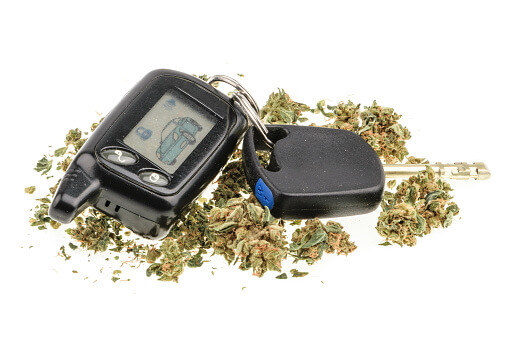Driving under the influence of any substance – including marijuana – is illegal in Illinois, but some users think it’s OK to drive high.
This could become a bigger problem now that Illinois allows medical marijuana and could potentially legalize recreational pot for adults this year.
Police officers need more training, according to law enforcement officials, and drivers need to know how marijuana impacts their ability to drive safely.
According to the Insurance Institute for Highway Safety (IIHS), experimental studies on the impact of marijuana on driving performance have had inconsistent results. Crash rates have risen in states that have legalized retail sales for recreational use.
Effects of marijuana on drivers
The National Institute on Drug Abuse notes the following significant effects of marijuana on drivers:
- Impairs judgment
- Motor coordination
- Reaction time
- Direct relationship between blood THC concentration and impaired driving ability
A Chicago Tribune article reports that an IIHS study found that 5 percent of drivers aged 18-29 and two percent of drivers aged 30 and older reported driving within two hours of using marijuana.
In a September 2014 survey of drivers in Colorado and Washington who had used marijuana in the past month, almost 44 percent reported driving high in the past year, according to the Governors Highway Safety Association, a national safety group. Colorado and Washington were the first two states to authorize recreational marijuana use.
Traffic deaths related to drinking and driving are declining as incidents related to drugged driving rise.
“Marijuana is the most common drug found in fatally injured drivers, according to the highway safety association’s study. While the effects of marijuana can vary greatly from person to person, many studies show that pot impacts skills needed for driving, such as vigilance, time and distance perception, lane tracking and reaction time,” states the Chicago Times.
Testing inconsistencies
The problem, however, is testing drivers for marijuana. The IIHS notes that unlike alcohol, the amount of marijuana present in a person’s body doesn’t consistently relate to impairment.
THC, or tetrahydrocannabinol, is the primary psychoactive component of cannabis. A positive test for THC and its active metabolite doesn’t mean the driver was impaired at the time of the crash. Habitual users of marijuana may have positive blood tests for THC days or weeks after using the drug.
Contact Coplan + Crane, personal injury lawyers in Illinois, today if you’ve been hurt in a crash and suspect marijuana or other drugs were involved. Our attorneys will get to the bottom of it.
















